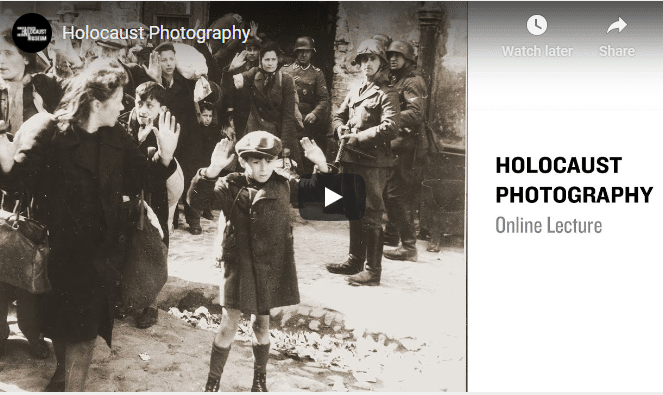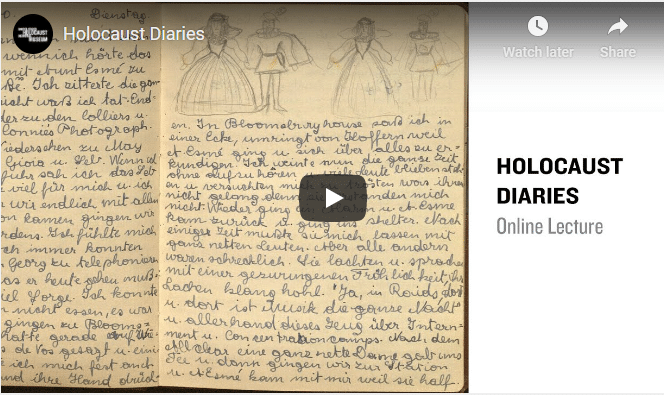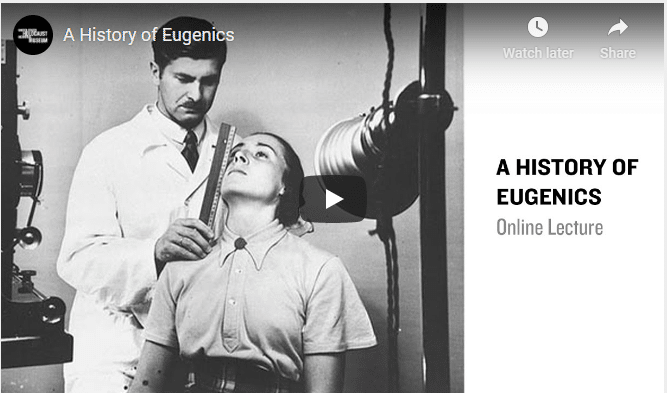The HDEC encourages you to view the following lectures offered by the United States Holocaust Memorial Museum.
These 20-minute lectures feature renowned scholars from Holocaust studies and beyond. In the lectures, scholars discuss primary sources that illuminate topics using photographs, propaganda, diaries, short films, and artwork drawn from the Museum’s vast collection and other sources.
The Museum will continue to update the “Online Lectures” page as more lectures are produced.
The first three lectures featured are:
- Holocaust Photography
Dr. Daniel Magilow, Professor of German at the University of Tennessee – Knoxville, addresses some of the challenges that seemingly straightforward Holocaust photographs present. He discusses what constitutes Holocaust photography, how Holocaust photographs were and are still used, and the ethical considerations surrounding whether “to show” or “not to show” Holocaust photographs.
- Holocaust Diaries
Dr. Alexandra Garbarini, Professor of History and Jewish Studies at Williams College, discusses the diary of Irene Hauser. The diary touches on themes of divorce, abuse, prostitution, Ghetto life, and family life. Dr. Garbarini also provides a framework that can be used to analyze any Holocaust-era diary.

- A History of Eugenics
This video covers the history of eugenics, or “racial hygiene,” in Germany and the United States throughout the late nineteenth and early twentieth centuries. The discussion between Dr. Patricia Herberer Rice and Dr. Lutz Kaelber explores several sources that display how eugenic practices paved the way for sterilization, and in the case of Nazi Germany, murder, of those deemed “unfit” to reproduce. Ultimately, Dr. Herberer Rice and Dr. Kaelber expose the racism, antisemitism, and ableism that underpinned the eugenic practices that took place before, during, and after World War II.
